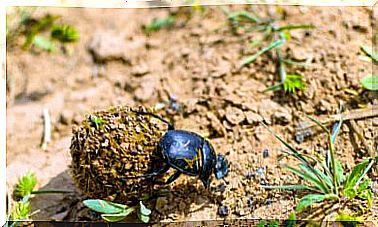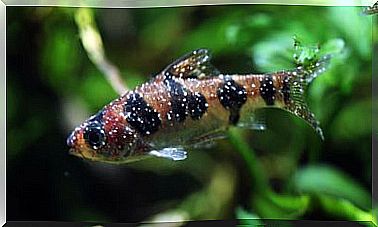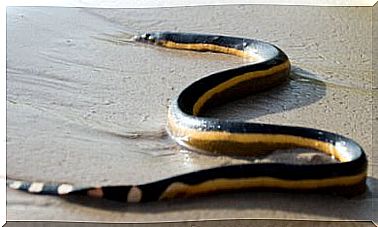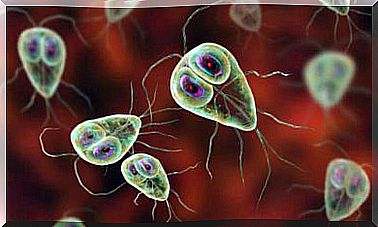Rabbits And Spinach: 4 Things To Keep In Mind
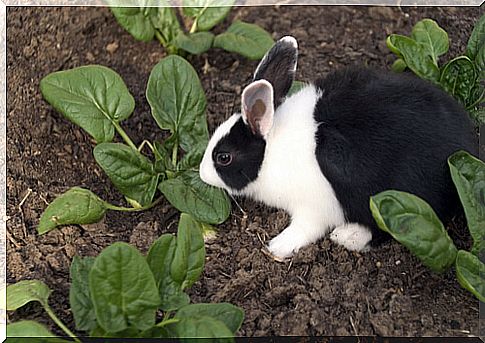
The pet’s predilection for rabbits has been on the rise. Therefore, it is increasingly necessary to know more about this species. Especially when it comes to diet. In fact, a question that commonly causes doubt is whether or not to include spinach in it.
If you want to be a good tutor for your rabbit, you must be aware of its nutritional habits and requirements. For our part, we will give you some advice. Take note!
How do rabbits work?
In general, you should bear in mind that:
- Common rabbits (Oryctolagus cuniculus) are mammals that, in order to live well in a home, need certain comforts.
- Some breeds grow to weigh more than 10 kilograms and even more, and all of them have specific nutritional and exercise requirements.
- They have habits that can be difficult to understand, such as eating their own poop.
- Rabbits are herbivorous animals. This means that they have a plant-based diet.
- Their diet is generally based on hay. Although it usually also includes herbs, clover and some cruciferous plants, such as broccoli and Brussels sprouts.
- To a lesser extent, the diet may include fruits, seeds, roots, shoots, and tree bark.
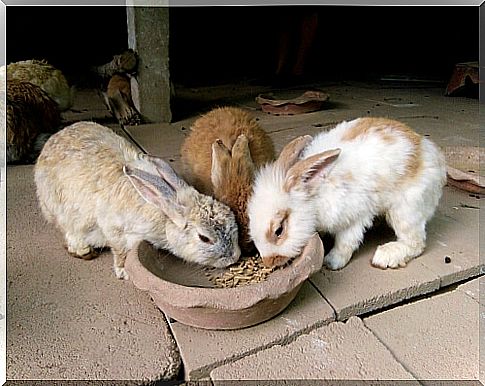
Bladder mud
Humans, dogs, and cats do not absorb excess calcium from the diet, and they constantly excrete it through their feces. However, in the case of rabbits, this is very different.
Rabbits absorb all the calcium from the diet at the intestinal level and excrete the extra calcium through the urine. Given the alkaline pH of urine, calcium salts precipitate.
For this reason, rabbit diets high in calcium can cause a cloudy appearance to the urine, also called “bladder sludge.”
The clinical problems of bladder sludge, which commonly progresses to urolithiasis, are the reasons why many veterinarians believe that calcium intake should be limited in rabbits.
Calcium requirements in the rabbit
Calcium is one of the minerals that must be present in the domestic rabbit’s diet, but in a very controlled way.
In mammals, most of the total body calcium is found within the bones and teeth. While most mammals have only one or two sets of teeth in their lifetime, rabbit teeth grow continuously throughout their lives. That gives us an idea of your calcium requirement.
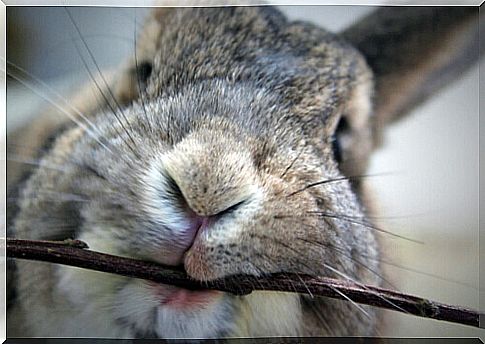
However, rabbits can suffer from excess calcium. The overload of this mineral is also associated with increased trichophagia, hair intake.
A serious consequence of excess calcium in rabbits is the calcification of organs: lungs, kidneys and aorta. Likewise, this condition can cause syncope, tachypnea, and kidney failure.
3. The nutritional contribution of spinach, rich in calcium and oxalates
Spinach has been found to be high in calcium and oxalic acid. Therefore, it is good to feed them to rabbits.
Oxalates are naturally occurring organic acids found in a wide variety of foods.
If oxalic acid binds to minerals such as calcium and magnesium, forming insoluble salts in the intestine, the absorption of calcium will be reduced. If it occurs in the bladder it could contribute to the appearance of kidney stones.
Additionally, spinach is a source of many vitamins and minerals, including potassium, iron, and magnesium.
On the other hand, they contain large amounts of carotenoids (precursor of vitamin A), vitamin C, vitamin K, and vitamins B6, folic acid or vitamin B9 and vitamin E.
Spinach and good hydration
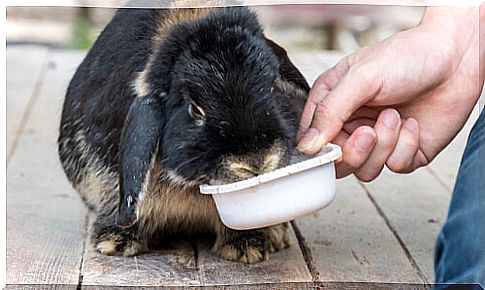
Spinach intake is recommended for rabbits, but always in moderation. Therefore, experts advise feeding them mixtures of 3 to 5 types of green leafy vegetables a day.
Ideally, you should not offer them the same plants and vegetables every week. Variety is key when it comes to taking care of your health. A good option might be the watercress or arugula salad, which goes very well with your serving of spinach.
It should be noted that spinach stalks have a higher fiber content than leaves, therefore they are very beneficial for rabbits. The roots of this plant have a higher sugar content because they store energy, so it is better not to offer them in excess.
Finally, stone formation is not exclusively associated with calcium intake. A relevant factor is the appropriate water consumption.
To avoid stone formation, it is important to promote adequate water intake. To encourage your pet to drink more, you can try adding some (natural) apple juice to his bowl.

